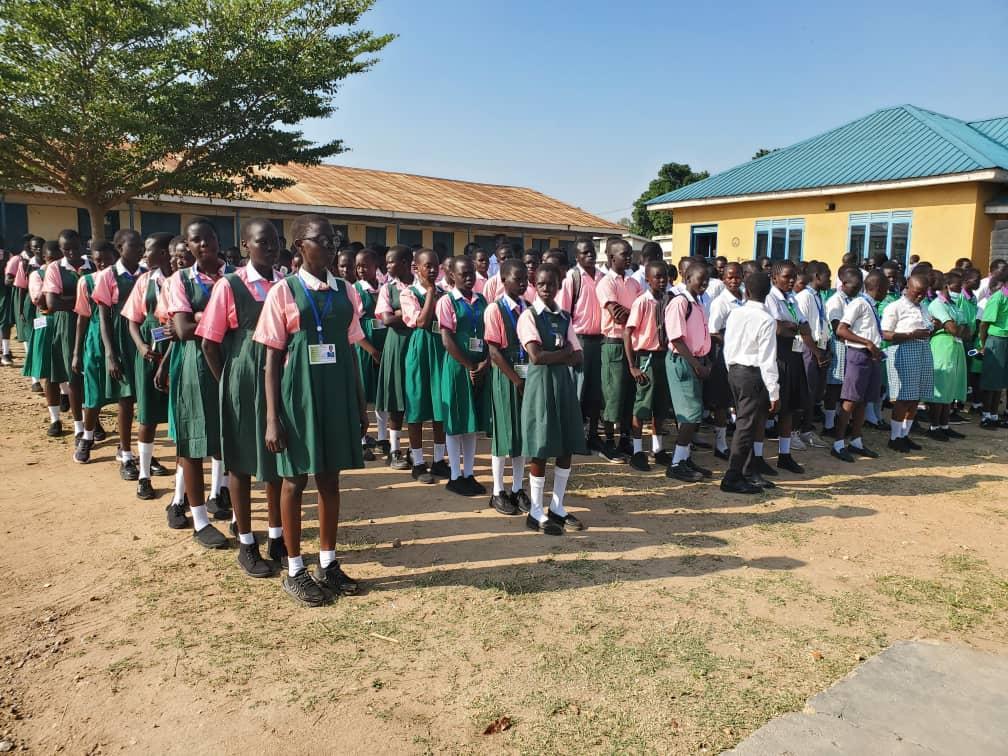Africa-Press – South-Sudan. Some public-school administrators in Juba have reported poor enrolment of learners for the academic year 2025 due to what they believe is the economic hardship and long delays in paying civil servants’ salaries.
Juba Day Secondary school and Juba One girls’ primary school are among schools that registered miserable turn up of only half of the 550 learners it enrolled for the academic year 2024.
On her part, Clementina Kiden Arkanjelo, the Head Teacher of Juba One Girls Primary School, said her school enrolled 557 learners in the academic year 2024. However, she said the number has drastically reduced to 313 although they have extended the period for registration.
“The number I registered last year, there were 557. This year people are still registering. So now I registered 313. We are supposed to be having only a limit time for registration. Once the school opens, maybe we take two weeks,” she said in an interview with Eye Radio.
Kiden said the parents of learners have not come to schools due to the fear of not being able to meet the academic cost although they offered to contribute for the support of their teachers.
“We reached the deadline of registration, but the parents don’t come. That is why we just leave it open like this. They are thinking that if they come to the school, the school needs money.”
“We have been telling them we don’t have compulsory charge on students. The collection they pay is voluntary parents contribution to help us buy some chalks and exercise books for preparation (lesson).”
Already, South Sudan has the world’s highest proportion of out-of-school children, with 72 percent of children out of school, according to UNICEF. A 2020 World Bank report also indicated that only 48 percent of South Sudan youth are literate.
In January 2023, President Salva Kiir declared free education and directed relevant government ministries to ensure that primary and secondary education is free throughout the country.
The president said education is the priority of his administration and that the government has decided to impose free education to help families with high registration fees.
The policy, welcomed by civil society and rights groups as an important step to help thousands of children return to learning, is seen to have yielded little enforcement due to the irregular payment of teachers.
George Kenyi Wilson, the Head Teacher of Juba Day Secondary School, also reported that he was expecting nearly 550 learners this year. However, he said he was only able to enroll 285 learners.
George believes that most of the learners in public institutions are children of public servants who have not been paid for the past 12 months and can’t raise the agreed amount.
He also said stiff competition between the public and private sector has also jeopardized the effort of the public institution.
Mr. Kenyi said parents believe that all qualified teachers have gone to private institution due to lack of pay in the public schools.
“When we opened on the 3rd of February, we gave two weeks for the enrolment period and then we assessed. But when we assessed, the number we expected was less than 10%,” he said.
“So we said, no, let us give it up to three weeks and only 20% of the capacity we wanted registered. So most people in the community thought that teachers will not report to school because teachers cannot start teaching while they have not even got their salaries for the last 12 months or so.”
“Parents were now pessimistic. They were not able to send their children because they thought even if their children come to school, teachers are not going to start.”
Both administrators called on parents to meet them in their various offices to discuss possible ways of keeping their children in school.
On January 30, 2025, a group young reporters from UN children’s charity launched a Back to School campaign to encourage parents to return children to learning, including nearly three million already dropped out across the country.
The initiative aimed to raise awareness about the importance of education and encouraging young people and families to prioritize schooling amid financial struggles.
For More News And Analysis About South-Sudan Follow Africa-Press






